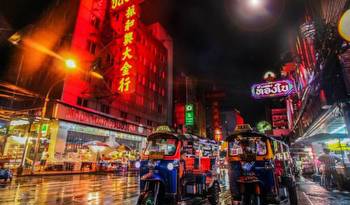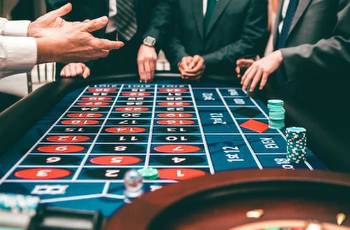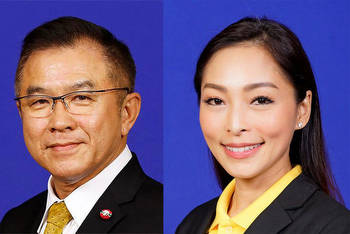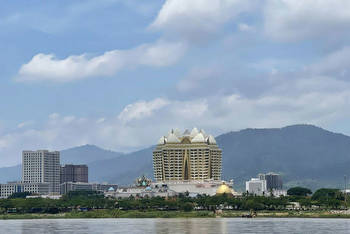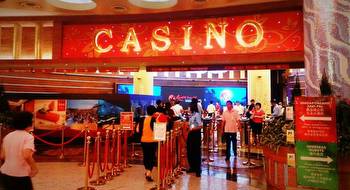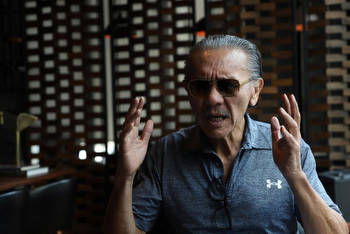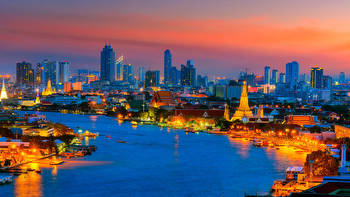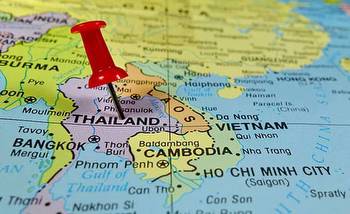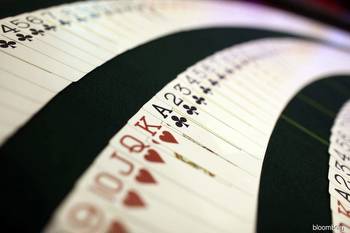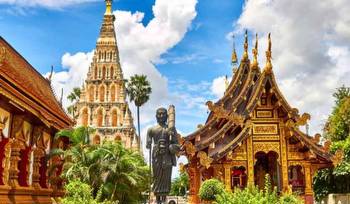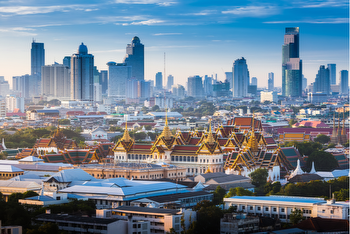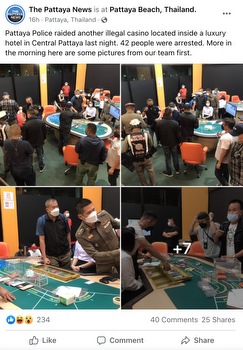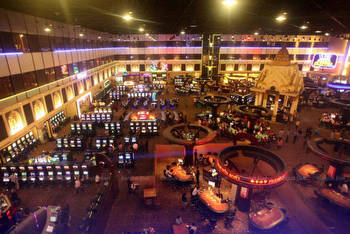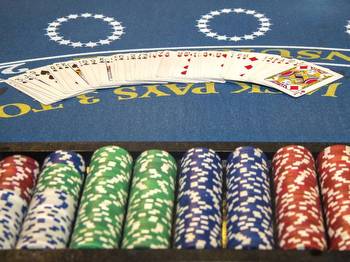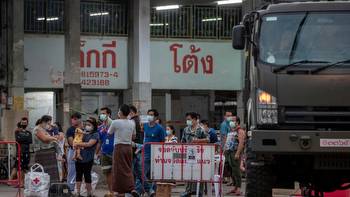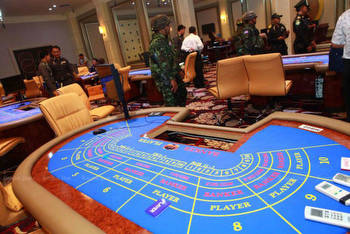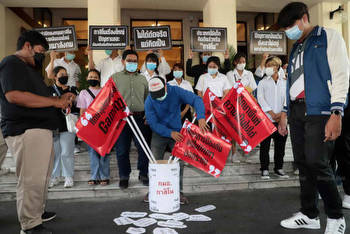Legalise casinos, and profit, says former massage parlour owner

Former politician and massage parlour tycoon Chuwit Kamolvisit has thrown his support behind a move to legalise casinos, saying it would be a huge revenue raiser for the government and attract foreign visitors.
Known as a political maverick and media firebrand, Mr Chuwit said people should accept the truth that vices, including gambling, are enjoyed by many Thais.
''We should stop pretending [that vices do not exist]. Police should also stop raiding gambling houses. Shady activities are a channel for some authorities to get ill-gotten gains and they should be now legalised," he said.
He also said several illegal gambling dens operate right under the nose of police and with their knowledge.
''Without the green light from police, these illegal dens cannot operate. Therefore, legalised gambling should curb the dens," he said.
In the past, some illegal gambling dens offered money to certain state officials in exchange for their support. Those officials then used the money to buy their positions, Mr Chuwit said.
''Now is the time to make them legal," Mr Chuwit said, further describing a casino as ''just a minor vice, not a serious one''.
Under the law, illegal gambling is considered a minor crime and is only punishable by a fine or a suspended jail term, Mr Chuwit said.
''Gambling is one of the vices in society. No society can escape it. But we are trying to pretend they don't exist. Some argue prostitution does not exist, but massage parlours are there in the heart of the capital.
''Some refuse to accept that illegal gambling dens exist. Several dens raided by police are luxurious, air-conditioned establishments, controlled by software systems. Moreover, gambling has now gone online," Mr Chuwit said.
Legal casinos boost state revenue
Mr Chuwit said the government needs money to finance its relief programmes to ease the economic impacts of Covid-19 along with high fuel prices and the rising cost of living.
Under current circumstances, state coffers have been depleted as tax collection failed to meet targets, Mr Chuwit said.
''Therefore, the government should think of making casinos legal. A House committee was set up to study the feasibility of building a casino as part of an entertainment complex," Mr Chuwit said.
''Actually, several neighbouring countries have already opened such complexes. They made big investments. They have ways to generate revenue, with membership systems. Thailand may be slow, but it has not missed out on an opportunity yet.
''Thailand is still in a more advantageous position because the country is so heavily oriented towards tourism and the service industry so we can get started straight away," Mr Chuwit said.
He said the country should come up with a strategy to diversify its tourism products to offer visitors a broader and more varied tourism experience.
''Tourists will not come here just to see canals or temples,'' he said.
''Some may avoid mentioning Patpong or those vices. Some say the country is a Buddhist society and this runs counter to Buddhism. But those vices are still there.
''If you accept it and make them legal, build legal entertainment complexes with casinos and hotels, they will attract many tourists," Mr Chuwit said.
''Thailand has everything to offer. There is only one hurdle left to clear -- accepting the truth about these minor vices. I think the casino industry can contribute substantially to the country's economy."
However, Mr Chuwit said legalised gambling would not put illegal gambling out of business.
"This has also been the case for the underground lottery. It is still around and thrives despite the government lottery. So are illegal dens," he said.
''But the government would be able to collect additional tax and revenue from legal gambling houses and promote tourism. When you enter legal casinos, you will not have to worry about cheating. No thugs, hooligans or gunmen would be allowed inside," Mr Chuwit said.
''In legal casinos, patrons can be screened. The age limit will be set. Customers have to show proof of ID cards.
''In illegal dens, people can commit crime and get away with it. Some may sell and deliver drugs at those premises," Mr Chuwit said.
On June 29, the House committee discussed ideas for the legalisation of casinos to earn revenue, collect taxes from the complexes, as well as to curb illegal casinos, slot machines and online gambling.
According to the committee, Thailand could accommodate five casinos -- one in each of the five regions.
Pichet Chuamuangphan, deputy chairman of the House committee, said the feasibility study will take a year and is based on business models of many countries including Singapore and Malaysia.
The primary aim of having entertainment complexes in Thailand is to create jobs, attract foreign visitors and bring additional revenue to the country, he said.
A plan to operate one casino in each of the country's five regions will be submitted to the government, he said.
Mr Pichet said the government would grant a concession for each facility to a private firm to invest in. The government expects to collect 30% in taxes from each entertainment complex, he said.
Regarding clientele, the committee suggests customers must be at least 20 years old and be of good financial standing to gamble. State officials would not be allowed to enter such places unless they hold a valid permit.
Mr Chuwit said police have been trying in vain to crack down on illegal dens for more than a decade.
''Police raided and made arrests. Shortly after, they reopened and the cycle is repeated. Related laws should be revised to slap hefty fines on operators of illegal dens.
All-inclusive complexes
Mr Chuwit said there are four locations that have the potential to open casinos -- Pattaya, Koh Larn, Bangkok and Phuket -- and casino complexes should be all-inclusive, with cocktail lounges, massage parlours and entertainment facilities or even amusement parks.
Workers in legalised casinos will pay taxes and be entitled to welfare benefits such as social security and health check-ups, he said.
''This is what we should do rather than forbid. If we wait too long before starting casinos, customers will move to neighbouring countries," Mr Chuwit said.
He also called on the government to allow nightlife establishments to open until early hours.
''Thailand is touted as a tourist destination, but they have to close early. For example, nightlife outlets in Phuket should be allowed to open until 5am. Why be shy? Today, Pattaya has the walking street, with crowded bars,'' Mr Chuwit said.
Referendum on legalised casino
But if people are still divided on the legalisation of casinos, the government should step in and hold a referendum for people to vote on the matter, Mr Chuwit said.
''A referendum should be held because the issue involves everyone,'' Mr Chuwit said, adding the government should also come up with measures to prevent young children from entering casinos by introducing membership systems.
''Sooner or later, Thailand will inevitably reach the point [where casinos will be legalised],'' he said.
He said a casino location should be easily accessible and already a tourist destination. It may be an island.
''You can regulate vices and keep them in moderation. In reality, Thais are just three steps away from vices,'' Mr Chuwit said.








